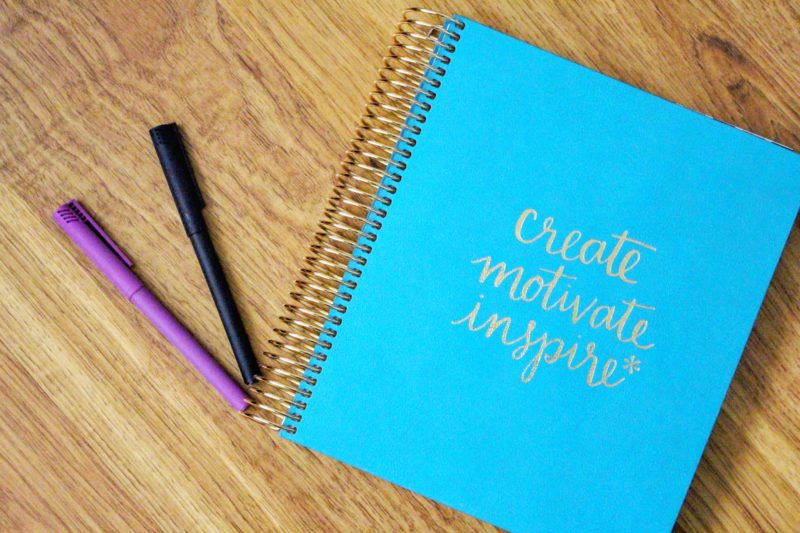Two years ago I wrote a popular post called 10 Study Tips for College Students, and I’m honored that it has reached the computer screens of thousands of people all over the country and world.
Since writing that post, I’ve completed graduate school with a 4.0 GPA while balancing working full-time and planning a wedding. Let’s just say that conquering all of that took a lot of effort – but most importantly, it required me finding (and using) the best study tips for college students that are out there.
Since I was studying psychology, I found myself learning more about the brain and how we learn and retain information. I was surprised to see how many different methods there are to learn things – some wacky and some more challenging.
A lot of them inspired the material that I used to create some of the lessons in my time management course, Stress-Free Scheduling, which was released in 2016.
Now, it’s about to be the middle of August. There are thousands of college students across the world going back to school and I believe that this information could make the difference in an A or a C in any class.
So without further ado, I’m excited to share with you the best study tips for college students!
*Disclosure: Some of the links included in this post are affiliate links, meaning I will receive a small percentage of each purchase you make (at absolutely no cost to you)! I only recommend products I fully support and always think about my readers when including them!*
Start Each Day With a List of Must-Dos
When you have three tests and two papers due within five days of each other, everything is going to start to seem like a priority.
Unfortunately, seeing all of this work on your must-do list actually has a good chance of making you feel overwhelmed and extremely unmotivated. Talk about a rough start!
Instead of allowing yourself to get into this mindset, make it a point to create a list of just three things that absolutely HAVE to get done that day. For example, if you have a test tomorrow and a paper the next day, those should take priority over whatever else is going on after that.
As you’re writing your must-dos list, make sure you are extremely specific with what needs to get done.
Here’s an example:
Find three scholarly resources that I can use for my paper and write out their citations to place in my References section.
You’ll notice that this example is to the point, but it’s also clear. I know how many resources I need and what I’m going to do with them.
I think a lot of college students have an issue with just writing something down like “read for English” or “write half of my paper.” Goals always work best when they are clear and measurable, so do yourself a favor and start to think in numbers and specific actions so that you have a better chance of success.
This is one of the best study tips for college students because it gets your thoughts organized and forces you to look ahead to the near future. When you’re aware of what’s going on in your schedule, you’re less likely to forget assignments or feel completely stressed out.
P.S. This daily to-do list notepad is the perfect fit for mastering your must-dos, amongst other things.
Don’t Study the Same Subject For More Than an Hour or Two
Unless you are in the middle of writing a paper or conducting a big study session, psychology actually recommends giving your mind a break from the same material.
Why this is one of the best study tips: When you shift your focus elsewhere, you’re actually giving your brain time to soak in all the material you fed it. In fact, research shows that students perform better memory recall when they leave at least 12-24 hours in-between their same subject study sessions.
One of the things I liked to do was set aside a specific time to study each subject on any given day.
For example, I may have blocked off an hour on Monday at 9am to study math and then another hour on Tuesday at 9am to study math again. This not only gave my brain time to rest from math (which I wasn’t the best at), but it also helped me maintain a consistent study schedule (which I came to appreciate greatly).
Obviously there are going to be times where you’ll need to study a subject a lot more than normal, so just make sure that you build in some solid breaks here and there. If you don’t, you may feel like you aren’t retaining as much information as you should be.
The best way to organize your study schedule is to put it in a planner. Here are a few of my favorites:
Quiz Yourself Even Before You Feel Ready
One of the biggest mistakes I made was not quizzing myself right off the bat. As I was going through my master’s in psychology program, I learned that one of the best ways humans learn is by quizzing themselves throughout the entire process, not just before a test.
I think as humans we hate to be wrong and our brain just has this wall up against testing its ability to remember things early on. We think that if we just read a little more or spend a few more days going through our lectures that we’ll have a better chance of getting the answers right.
I’m here to tell you that it’s ok to get those answers wrong because when you do, your brain starts to make connections that I might not otherwise make once you reveal the correct answer to yourself. All of these little connections work to make your brain better at memory recall, and that means better grades for you!
Yes, this will probably seem a little uncomfortable to you at first, but I promise that the results will be worth it!
So what are you waiting for? Go grab a pile of index cards and get to work!

Use This Approach the Next Time You Say You’ll “Do It Later”
One of the best study tips I ever received from a fellow student was this:
Whenever I said that I would do something later, I should tell myself that I would work on the assignment at hand for at least five minutes. If I’m just not feeling it after the five minutes are up, then I could stop and move on with a different activity.
The funny thing is that I actually found myself getting the assignment done instead.
This is one of those mental blocks that we have as humans – We struggle to get the motivation to do things we aren’t exactly excited about, but once we start, we have the desire to usually finish.
So the next time you find yourself in this mindset, set a timer for five minutes and see how you do. You may be surprised!
Find Tools or Products That Make Studying Easier and More Enticing
The world of technology and products has changed so much in the past decade, and even in the past few years! You no longer have to stick with just traditional pen and paper to get your work done.
If you’re more of a creative mind or someone who needs some extra motivation to get going, then this is the best study tip for you!
Personally, I hated studying at a desk. I don’t know what it was, but I just couldn’t get into it.
But what I did learn is that when I had a comfy blanket and an organized planner to work with, I had a much better chance of getting my work done.
A little strange, huh?
We all have our little quirks and mine just happened to involve blankets (still does – I find myself wrapped up in one even in the midst of summer because it just makes me feel better).
The toughest part for you is going to be finding what you ideally need to get down to business. I recently wrote a post about affordable dorm room decor that might help you be more productive and more at home, which could help put you in the studying mindset.
If you’re a tech person to the extreme and can’t live life without phone reminders or your laptop, then I would recommend some of the following products:
- Evernote Smart Notebook – If you like to digitally capture and organize your notes and thoughts, this is perfect for you! Use in conjunction with the Evernote app to keep all your notes in one place as you study and go through your classes.
- Fitbit Blaze – For half the price of an Apple Watch, you can get call, text, and calendar notifications all in one place while also tracking your fitness activity (because a healthy body will give you a healthier mind)
- Amazon Echo – If you like controlling things with your voice, then look no further. Order products, listen to music, ask questions, use apps, and so much more! It’s a tech person’s dream (and like having your own concierge service right at home)
Best Study Tips for College Students: Never Stop Pushing for Better
How well you do in college is ultimately up to you. You can take these best study tips for college students and tweak them to fit your needs, or you can stick with the generic advice you’ve heard over the years and hope something sticks.
Sure, there’s nothing wrong with those techniques, but can you tell me how many times you’ve heard your professors say “just review the textbook” or “make sure you complete all the readings”? Those are pretty generic and not very helpful!
Get down into the thick of things and start making some specific goals and must-dos for yourself. Hold yourself accountable and push yourself to study outside of your comfort zones a bit. Stretch your mind to think differently and react to material in a way that it hasn’t before. Eventually, you should notice a positive change in your memory recall, and your grades, when you implement these best study tips for correctly during your college years.
As always, I’m here if you need any help along the way!




This article was so helpful. Thanks 🙂
I’m glad you found it helpful, Catherine!
My goal is to score all A’s this semester. Thank you for sharing your ways, I will definitely implement this to my study habits.
Best of luck, Jennifer! I’m sure you’ll do great this semester 🙂
The world is grateful to have bloggers like you. Honestly these tips have made high school suck a lot less.
XOXO
Aw, I’m so glad! Hang in there 🙂
This post was super helpful! I’ll definitely be using some of these tips in the upcoming semester! http://carleehebert.com/
Definitely could’ve used some of these tips back when I was in college! Great list 🙂
Thanks for stopping by, Sarah!